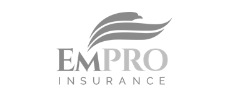Insurance for Independent Living Facilities

Liability insurance is essential for independent living facilities because they are responsible for the safety and well-being of their residents, who may still be active but are often elderly and more susceptible to accidents.
Independent living facilities can face significant financial risks if a resident is injured on the property, or if there are allegations of negligence or inadequate maintenance.
Liability insurance helps cover legal defense costs, settlements, or judgments that may arise from such incidents, protecting the facility from potentially crippling financial losses.
Get a Free Quote Now
The fastest way to find the most suitable insurance coverage for your independent living facilities is to fill out our quick quote form, so we can give you an idea of the type of insurance coverage that best suits you.
Westwood Insurance works with a number of different carriers to ensure you have the most suitable insurance coverage at the best price.
Insurance for Independent Living Facilities can include:
- Covers general liability for age-restricted housing and retirement communities.
- Protection for resident slips, trips, falls, or property damage claims.
- Optional coverage for food service, recreation, or wellness centers.
- Support for transportation, volunteer oversight, and visitor liability.
- Available for facilities with concierge, security, or light healthcare presence.
- Legal defense expenses covered in addition to liability limits.
- Evacuation Expense Endorsement to relocate residents in a natural disaster or emergency.
Why is Independent Living Facility Insurance Essential?
Even though residents in these facilities have a reasonably autonomous lifestyle, they still face various risk exposures. Liability claims can arise from:
- Neglecting Facility Maintenance: These facilities must ensure that all living spaces and common areas are safe and well-maintained. Slip and fall accidents caused by things like loose carpeting, wet floors, or inadequate lighting; can result in significant injuries and lawsuits.
- Inadequate Security Measures: Facilities are responsible for the security and safety of their residents. Inadequate security that leads to theft, injury, or unauthorized entry can result in claims against the facility.
- Failure to Meet Health and Safety Standards: Independent living facilities must adhere to health and safety regulations. Failure to comply, resulting in hazards or health risks, can lead to regulatory fines and lawsuits.
- Breach of Contract: Residents and their families have expectations based on contracts with the facility. If the facility fails to meet the terms of these contracts, such as not providing promised services or amenities, it could face legal actions for breach of contract.
- Food Safety and Nutrition Issues: Providing meals is a common service in such facilities. Foodborne illnesses or failure to adhere to dietary restrictions can lead to health problems and potential lawsuits.
- Emergency Response Failures: Facilities must have effective emergency response plans in place. Failure to adequately respond to medical or other emergencies can result in claims of negligence, especially if resident suffer harm as a result of this lack of response.
- Violations of Residents’ Rights: This can include the right to privacy, autonomy, and dignity. Violations can lead to lawsuits, especially if they result in emotional distress or physical harm to the residents.
Adequate insurance is key to financial stability — and peace of mind!

Insurance policies for the senior living facilities vary widely from one insurance company to another. Insurance companies are constantly changing their policy forms to suit the risk exposure they want to maintain. Insurance companies will sometimes leave markets completely, refusing to insure facilities, or increase prices because they no longer want a risk exposure in that particular market.
This is why it’s beneficial to partner with an specialty broker like Westwood for your independent living insurance. We work closely with different insurance companies to keep up-to-date with their offerings. That way, we can always find the most suitable insurance cover for you at the best price.
How much does Independent Living Liability Insurance cost?
The cost of general and professional liability insurance for independent living facilities is usually around $200/ bed per year. Several factors influence this, including:
- The size of your facility: Larger facilities with more residents will typically pay more due to an increased risk exposure.
- Your location: Insurance costs can vary by region, influenced by local regulations and claim rates.
- The services you offer: The range and nature of services provided can affect risk levels.
- Your claims history: A history of insurance claims can result in higher premiums.
- The coverage limits and deductibles you need: Higher coverage limits and lower deductibles will typically increase insurance costs.
- Your safety and risk management practices: If you have implemented robust safety protocols, you may qualify for lower premiums.





















-
Premises liability for resident or visitor injuries on walkways, staircases, fitness areas, or pools.
-
Claims involving supervised transportation, food handling, or volunteer activities.
-
Coverage for amenity-based services like salons, recreation, and wellness classes.
-
Optional coverage for meals, laundry, housekeeping, or transportation.
-
Legal protection for wrongful eviction, privacy violations, or security breaches.
-
Add-ons available for managed care integration or affiliated on-site health providers.
-
Designed for senior living communities that do not provide skilled care but need solid general and professional liability protection due to the nature of their resident interactions.
What types of Insurance do Independent Living Facilities need?

General Liability Insurance

Professional Liability Insurance

Sexual Abuse and Molestation Insurance

Commercial Property Insurance

Workers Compensation Insurance

Cyber Liability Insurance
![]() My Insurance agency has done business with Westwood for over 10 years and always found them to be professional...
My Insurance agency has done business with Westwood for over 10 years and always found them to be professional...

Shira Abrams
02 May, 2023
![]() I’ve worked with Michael Richards and his team now for many years and I can unequivocally say that they are by far the...
I’ve worked with Michael Richards and his team now for many years and I can unequivocally say that they are by far the...

Joe Roth
11 June, 2023
![]() Westwood Insurance Group, with Dale and Liz are a pleasure to work with in helping solve for my insured’s insurance needs...
Westwood Insurance Group, with Dale and Liz are a pleasure to work with in helping solve for my insured’s insurance needs...

Greg Cullom
08 Nov, 2023
![]() Laura has been a great contact for us over at the Westwood Insurance Group. She is extremely communicative...
Laura has been a great contact for us over at the Westwood Insurance Group. She is extremely communicative...

Hayley Shryock
30 June, 2023
![]()

Kathy Natale
25 Sept, 2024
Speak with an Insurance Professional
Call 216-502-4967 or
Fill Out the Form
Michael Richards
Michael specializes in sourcing the most suitable Tail Coverage Insurance at the best price. You can call him or fill out the form and he will get your message directly.









